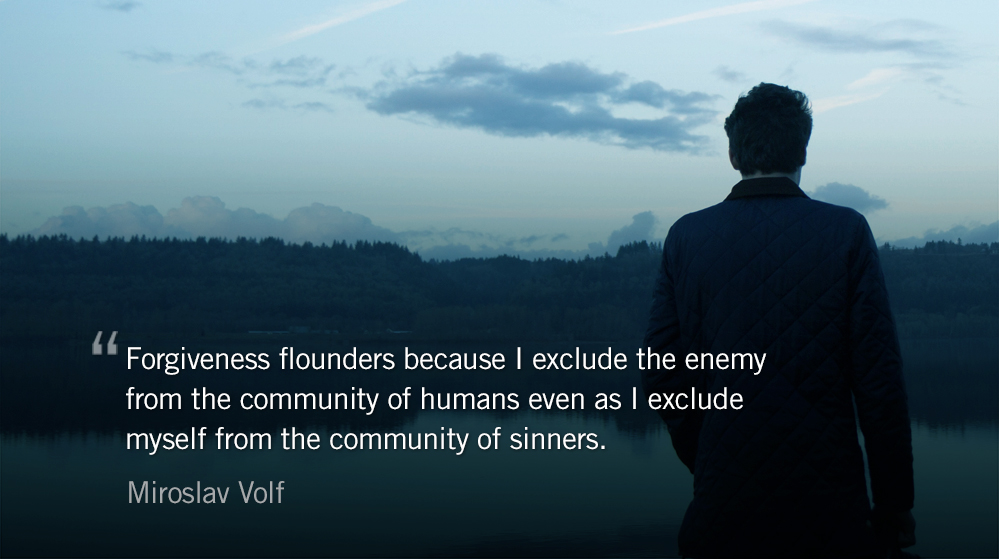I love today’s message. — Dee
Readers’ Choice (Originally published September 16, 2015)
All this is from God, who through Christ reconciled us to himself and gave us the ministry of reconciliation. — 2 Corinthians 5.18
“Forgiveness flounders because I exclude the enemy from the community of humans even as I exclude myself from the community of sinners.” — Miroslav Volf
Yesterday we examined harrowing acts of restoration following the Rwandan Genocide. On the other side of the same continent, and also in 1994, a recently freed political prisoner took the presidential office in South Africa.
Of the moment when Mandela was released from 27 years of imprisonment and forced labor Ghanna’s President, John Dramani Mahama writes for the New York Times;
The world was spellbound. We wondered what we would do if we were in his shoes. We all waited for an indescribable rage, a call for retribution that any reasonable mind would have understood…
Yet, the man insisted on forgiveness. “To go to prison because of your convictions,” he said, “and be prepared to suffer for what you believe in, is something worthwhile. It is an achievement for a man to do his duty on earth irrespective of the consequences.”
Mandela’s life illustrates the reality that when we have been hurt there is a debt which must be paid. We can either force the perpetrator pay, or we can forgive. Mandela’s presidency, and his legacy of dismantling structured racism in South Africa, were the results of his decision to forgive — the decision to absorb the debt.
When someone really wrongs you, there’s always a loss. You’ve lost reputation, or you’ve lost some opportunity you didn’t have and you never will get again. There’s a real debt. It’s not a monetary debt, but there’s a debt. You feel it, and you feel the person owes you. You feel the person is liable to you, but what are you going to do? — Timothy Keller
Moralism demands we forgive. The gospel goes farther. Jesus not only teaches about forgiveness, he offers up his life and blood of as payment for our own debts, as well as those we incur as the result of others’ sins. As I’ve written before, forgiveness is less about mustering up an emotion and more about extending the forgiveness God has already offered.
The weight of this reality did not escape Paul, who saw forgiveness as a foundational task in evangelism. “In Christ God was reconciling the world to himself, not counting their trespasses against them, and entrusting to us the message of reconciliation. Therefore, we are ambassadors for Christ — God is making his appeal through us.”
Today’s Reading
Jeremiah 45-46 (Listen – 5:51)
Psalm 22 (Listen – 3:49)
Submit a devotional for Readers’ Choice
Contribute your favorite Park Forum devotionals to Readers’ Choice.
Email me the title or link. If you don’t mind adding a sentence or two as to why each post was significant to you, I would love to include your voice as well.
Thanks for being part of The Park Forum community. We are so thankful to be part of your devotional rhythm.






